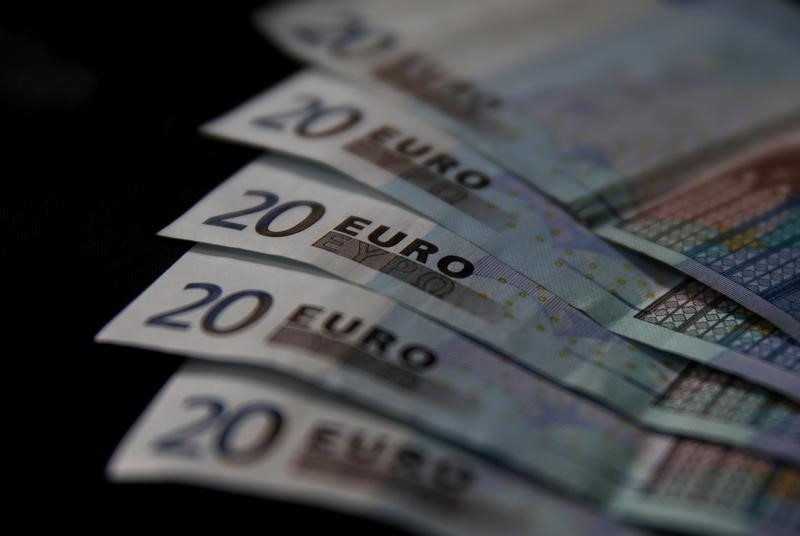Investing.com - The euro was down more than 1% against the dollar and the yen on Tuesday as a standoff between Greece and its creditors over a debt restructuring deal dragged on.
EUR/USD hit lows of 1.0714, the weakest level since March 20 and was last at 1.0722, down 1.02% for the day.
The drop in the euro came after Greece failed to reach an agreement on a program of economic reforms with its lenders on Monday. Athens will run out of cash later this month unless it can reach a compromise with its creditors in time to unlock more bailout funds.
The euro remained lower after preliminary figures showed that euro zone consumer prices slid in March but the rate of decline slowed from the previous month, indicating that price falls may have already bottomed out.
Eurostat said consumer prices dipped 0.1% on a year-over-year basis in March, in line with expectations after a 0.3% drop in February.
Falling energy prices continued to push down inflation, while service sector and food costs ticked higher.
Core inflation, which strips out volatile food and energy costs, was up 0.6% year-on-year, down from 0.7% in February.
The single currency has come under broad selling pressure since the European Central Bank launched a trillion-euro stimulus program earlier this month aimed at bringing inflation back to its target of close to but just under 2%.
A separate report showed that the euro area unemployment rate ticked down to 11.3% in February from 11.4% in January. It was the lowest unemployment rate since May 2012.
Demand for the dollar continued to be underpinned as investors looked ahead to Friday’s U.S. nonfarm payrolls report for February for further indications on the path of monetary policy.
The greenback has been boosted this year by expectations for higher interest rates, but its rally paused after the Federal Reserve statement released on March 18 indicated that it may hike rates more gradually than markets had expected.
Late last week Fed Chair Janet Yellen said a rate hike may be warranted later this year, but added that weakening inflation pressures could force the Fed to delay. The Fed head said policy tightening could "speed up, slow down, pause, or even reverse course" depending on how the economy is performing.
The U.S. dollar index, which measures the greenback’s strength against a trade-weighted basket of six major currencies, was up 0.66% to two-week highs of 98.95.
Elsewhere, EUR/JPY was at 128.72, down 1.07% for the day, while EUR/GBP lost 0.8% to trade at 0.7257.
In the U.K., data on Tuesday showed that the U.K. economy grew 0.6% in the fourth quarter, up from the preliminary estimate of 0.5%. The annual rate of growth was also revised higher to 2.8% from the initial estimate of 2.6%.
Another report showed that Britain’s current account deficit narrowed in the final quarter of the year, but rose to a record high of 5.5% of GDP for 2014 as a whole.
